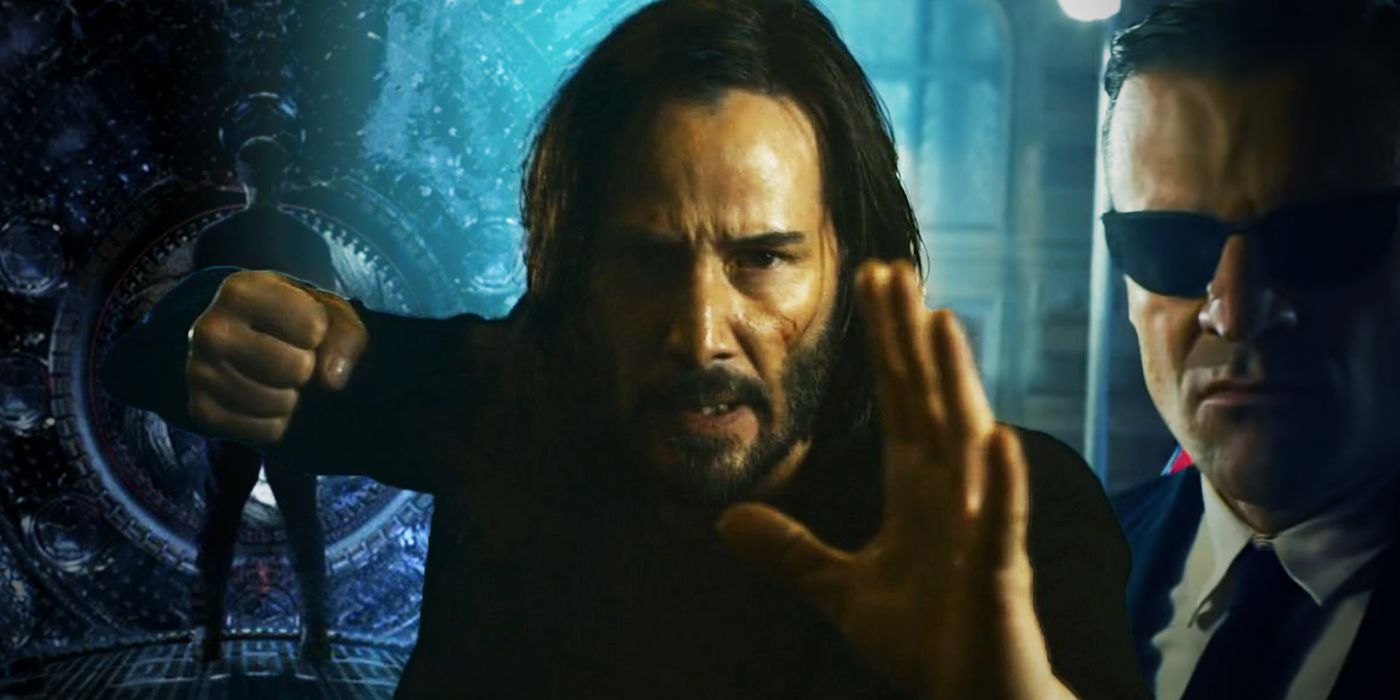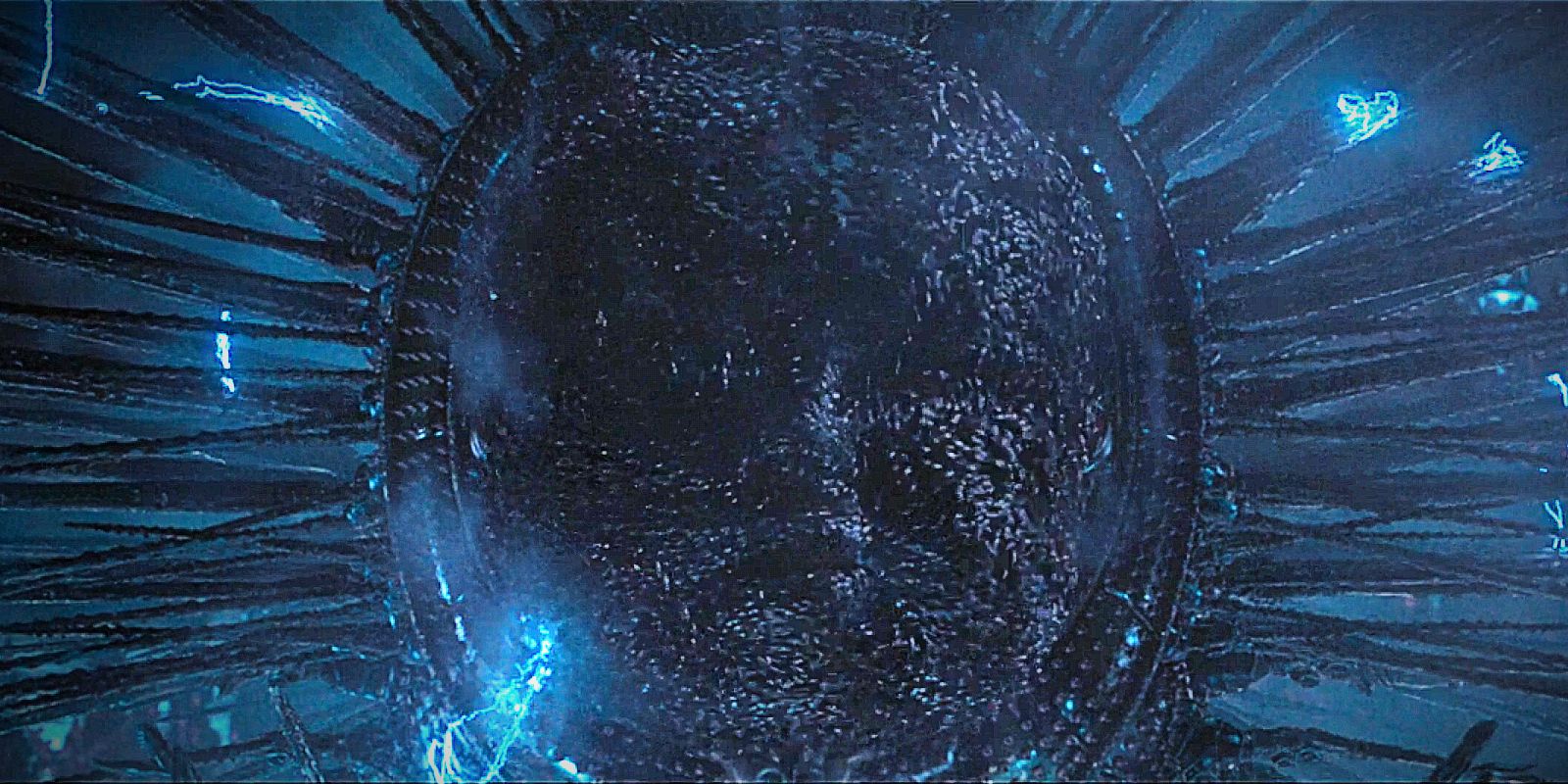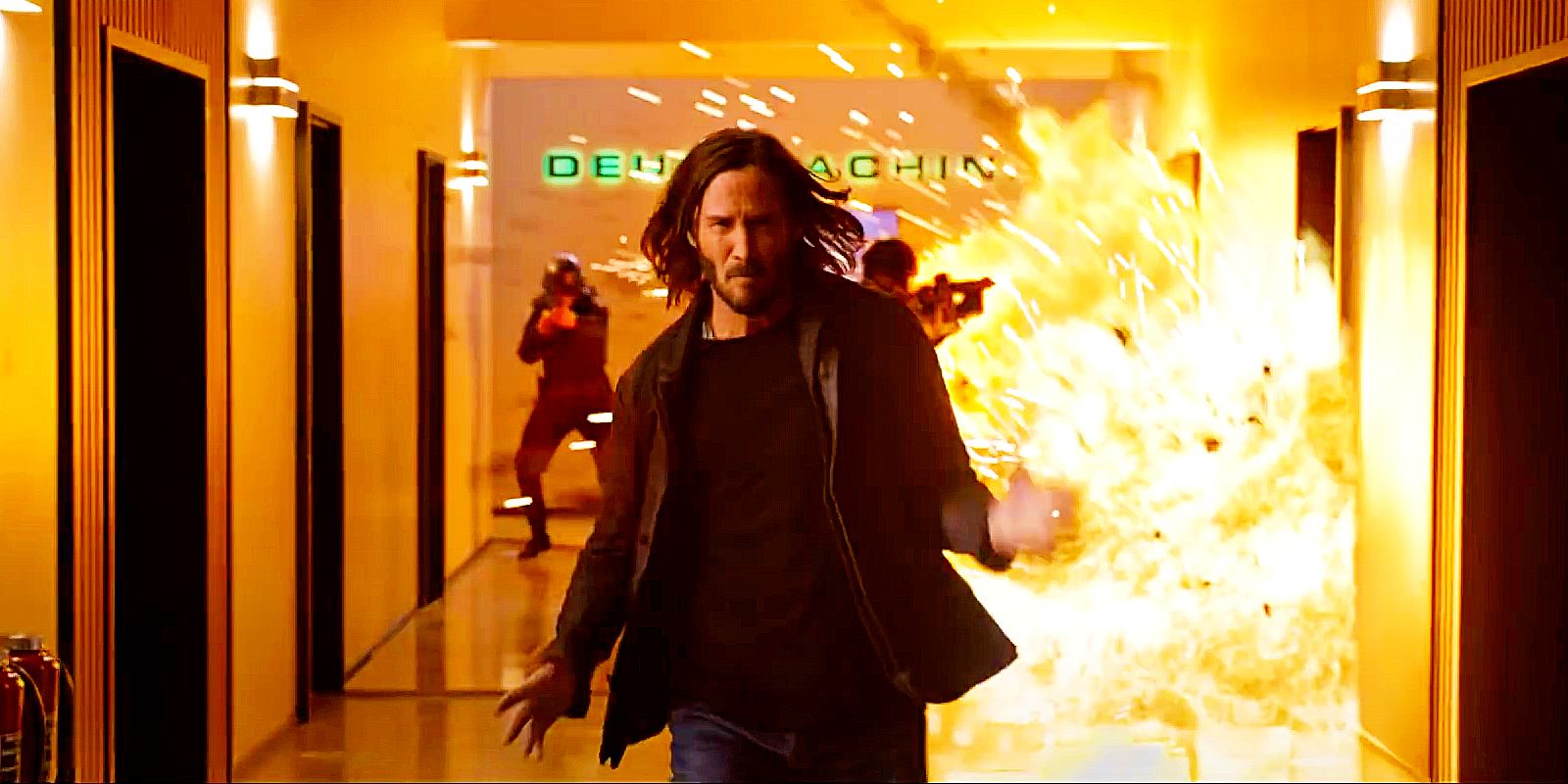
The original Matrix trilogy pitted two avatars against one another with the fate of humanity riding on the outcome. Selfless, brave, loving and noble, Neo represented the best that humankind had to offer. His antithesis, Agent Smith, on the other hand, was ruthless, relentless, insatiable and virulent. One half of the whole, their fusion set the equation at balance and a fragile peace was achieved. In the aftermath, the Architect of the Matrix asks the Oracle how long she thinks this peace might last, and she cryptically answers, as long as it can. The trailer for The Matrix Resurrections implies the truce can no longer endure, and may even divulge the new threat to the human remnant may be a vital engineer of the original armistice.
After Trinity's death, Neo makes his way past creeping mechanical centipedes, lurking armored scarabs and buzzing automated drones towards a precipice. As all the robotic vermin converge on him, they suddenly scatter, and in their absence, a huge sphere festooned with needle-like antennae rises from the depths. A legion of small, insect-like machines flow out of porous apertures in the spheres hull and form a twisted cherubic face. Neo calmly tells the entity that he has an offer of mutual service in exchange for peace. Though reluctant to deal with the human on equal terms, it eventually accepts, and the two beings successfully broker the accord that would follow.

Kevin Michael Richardson supplied the voice for the sphere entity, and, in the credits, his character is listed as Deus Ex Machina, a Latin phrase that means "god out of the machine." The term is a form of literary art meant to describe a plot device wherein an insurmountable obstacle is defeated by a previously unknown phenomenon that may take the form of a person, an object, or even a novel set of circumstances. In this case, the term is dual purposed because the Deus Ex Machina not only serves that purpose in the story but also acts as a deity of the machines within the narrative structure. The scurrying clockwork critters vanished in deference to this embodiment of the machine's governing Artificial Intelligence, and it's implied that this creature's energy signature is what Neo was being guided by once he and Trinity commandeered the Logos.
An end to the cycle upon cycle of brutal war had been achieved because Neo succeeded in defeating their mutual enemy, the parasitic pandemic of Agent Smith, and the Deus kept its word. It not only honored the arrangement but also accorded Neo's remains with all due solemnity for his sacrifice. However, in the new trailer, the words Deus Ex Machina appear in two separate shots in the same corporate hallway -- once as young Morpheus casually riddles his flanks with bullets and again when Neo is fleeing a blooming explosion and automatic gunfire.

At the core of the Matrix mythology, or theology, is the construct of duality. The films have never been shy about overt spiritual tones and allusions, such as character names like Trinity, ships christened the Nebuchadnezzar or refugee settlements known as Zion. Neo is a prophecized Messianic figure who must sacrifice himself so that the world may live. And the God Out of the Machine may offer a natural evolution of archetypes now that Neo has transcended his destiny, which also provides an opportunity to imagine how the fledgling AI may have matured.
In the final scene of the trailer, Neo is speaking with a man in an office who seems steeped in the confidence that power provides. Considering that the Deus Ex Machina signage appears on the wall of a business corridor, this may imply that this man is what the writhing infant god has become. Once a hesitant diplomat for peace, he may now represent the ultimate antagonist for survival on a scorched and diminished Earth.
To see the potential return of Deus Ex Machina, The Matrix Resurrections hit theaters and HBO Max on Dec. 22.
0 Comments